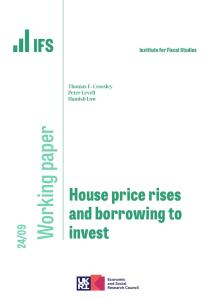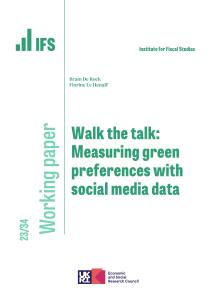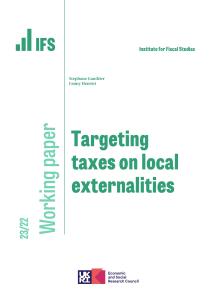Climate change used to be that rarest of things in British politics – an issue over which there was broad interparty consensus. That consensus saw Ed Miliband oversee the passing of the Climate Change Act in 2008, committing the UK to an 80 % reduction in greenhouse gas emissions by 2050; Theresa May enshrining of the target of net zero in law; and Boris Johnson going further still, increasing the target for 2030 reductions to 68%.
But recently we have seen a divergence from this consensus, with Rishi Sunak pushing back the ban on the sale of new petrol and diesel cars in the UK from 2030 to 2035.
In this episode, the Experts team drill down into this changing landscape. What do voters think about Sunak’s changes? How is Labour going to respond? What are the key steps to achieving net zero? And what are the economic costs involved?
Participants

Director
Paul has been the Director of the IFS since 2011. He is also currently visiting professor in the Department of Economics at University College London.

Anand Menon
Director, UKICE

Hannah White
Director, Institute for Government
Podcast details
- Publisher
- Institute for Fiscal Studies
More from IFS
Understand this issue

Election Special: Your questions answered
27 June 2024

Election Special: The big issues politicians haven't spoken about
25 June 2024

Cuts to council services likely unless cost pressures abate – even with the biggest council tax increases for 20 years
21 June 2024
Policy analysis

How would the parties’ tax and spending plans affect Scotland and Wales?
28 June 2024

How should we interpret parties’ public spending pledges this election?
23 June 2024

Main parties’ manifestos tell us little about the funding individual public services would actually receive
23 June 2024
Academic research

House price rises and borrowing to invest
27 March 2024

Walk the talk: Measuring green preferences with social media data
6 November 2023

Targeting taxes on local externalities
14 August 2023